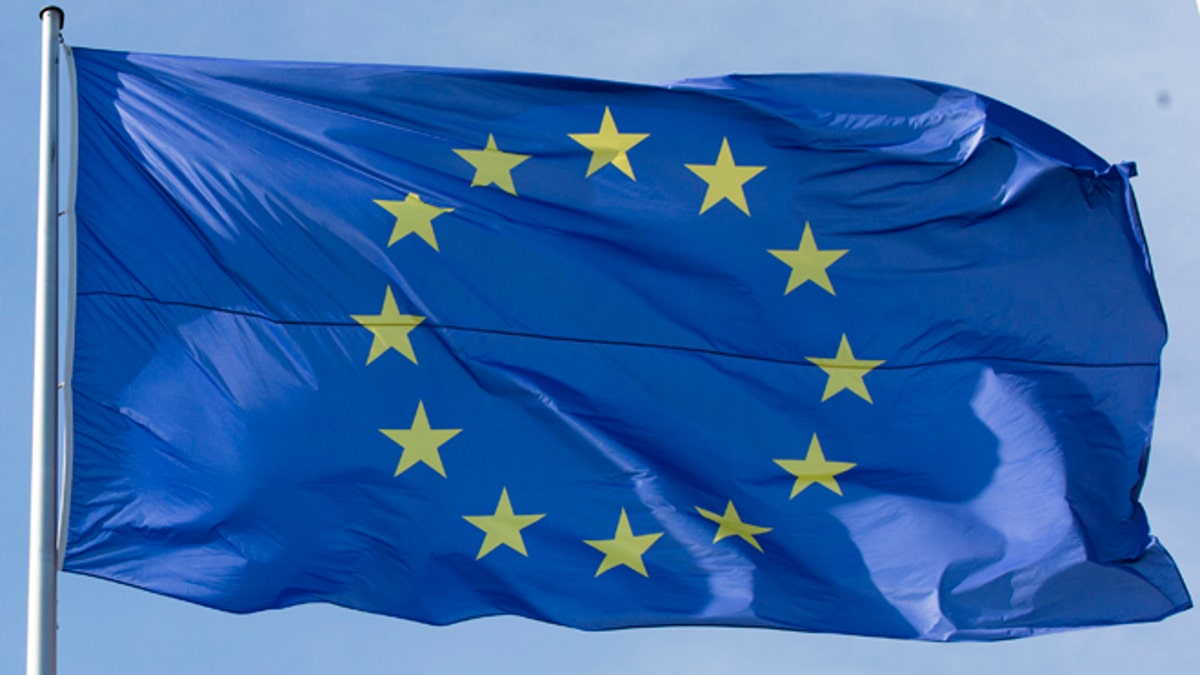
Oct. 12, 2012: An European flag waves in the wind in front of the chancellery in Berlin after the Nobel Peace Prize committee announced the European Union will be honored with the prize.
The awarding of the Nobel Peace Prize to the European Union itself is the latest grotesque act of self-indulgence by Old Europe’s political class. Morally equivocating elites will love it, but there are signs even many Europeans are losing patience.
Why on Earth give a prize to the unaccountable bureaucrat jamboree in Brussels known at the European Union?
How about giving an award to Malala Yousufzai, the 14-year-old schoolgirl in Pakistan who bravely spoke out against the Taliban’s treatment of girls, only to be shot in the head by Taliban last week? She’s recovering in the hospital and vowing to continue her struggle. She could probably use a boost more than Europe’s political golden boys.
How about giving an award to Chinese dissident Ai Weiwei, the artist who stands a lonely vigil against China’s brutal regime even as governments around the world bend over backward for copacetic relations with Beijing? Surely he deserves the award more than the political entity in Europe that has gone to bat repeatedly for terrorist-friendly groups like the Palestinian Liberation Organization.
How about giving an award to the crowd of unarmed Libyans who did what neither the US or Libyan governments have been willing or able to do—assault and evict the Ansar al-Sharia militia base in Benghazi that probably hosted those who killed the US ambassador last month? Surely they have done more for peace than the feckless, elite confab in Brussels that stood by as Bosnia descended into anti-Muslim genocide and which has been nearly irrelevant in the struggles since 9/11.
The Nobel committee’s choice is not just an insult to those outside Europe who want a moral, civilized order in the world—it is also a slap at average Europeans. It is they whom the EU has failed most of all. And don’t think they aren’t catching on.
In Greece, a recently laid-off beautician laughed derisively at a reporter when told of the decision, saying “It mocks us and what we are going through right now. All it will do is infuriate people here.”
In Ireland, a man told Reuters “I can’t get my head around it. They’d be last on my list. It’s such a bland and inert organization.”
These are the growing number of victims of Europe’s political class—which is embodied by the celebrated EU. As economies have collapsed, the elites in Brussels have clung to ideological fairy tales like the euro currency, Keynesian economics and steps to make Old Europe’s democracies even less responsive to the wills of their peoples. As the world has grown vastly more dangerous, those elites have clung to the conceit that dialogue with dictators alone can defend freedom.
Perhaps the saddest point of all is that the United States defends this political class. Sixty-seven years after the end of World War II and twenty-one years after the end of the Cold War, the US still has forces defending Old Europe, allowing Europe to spend a small and ever-decreasing relative amount on defense.
On second thought, maybe American and European taxpayers should thank the Nobel committee. It has inadvertently reminded us what an obtuse waste that Brussels has become.
